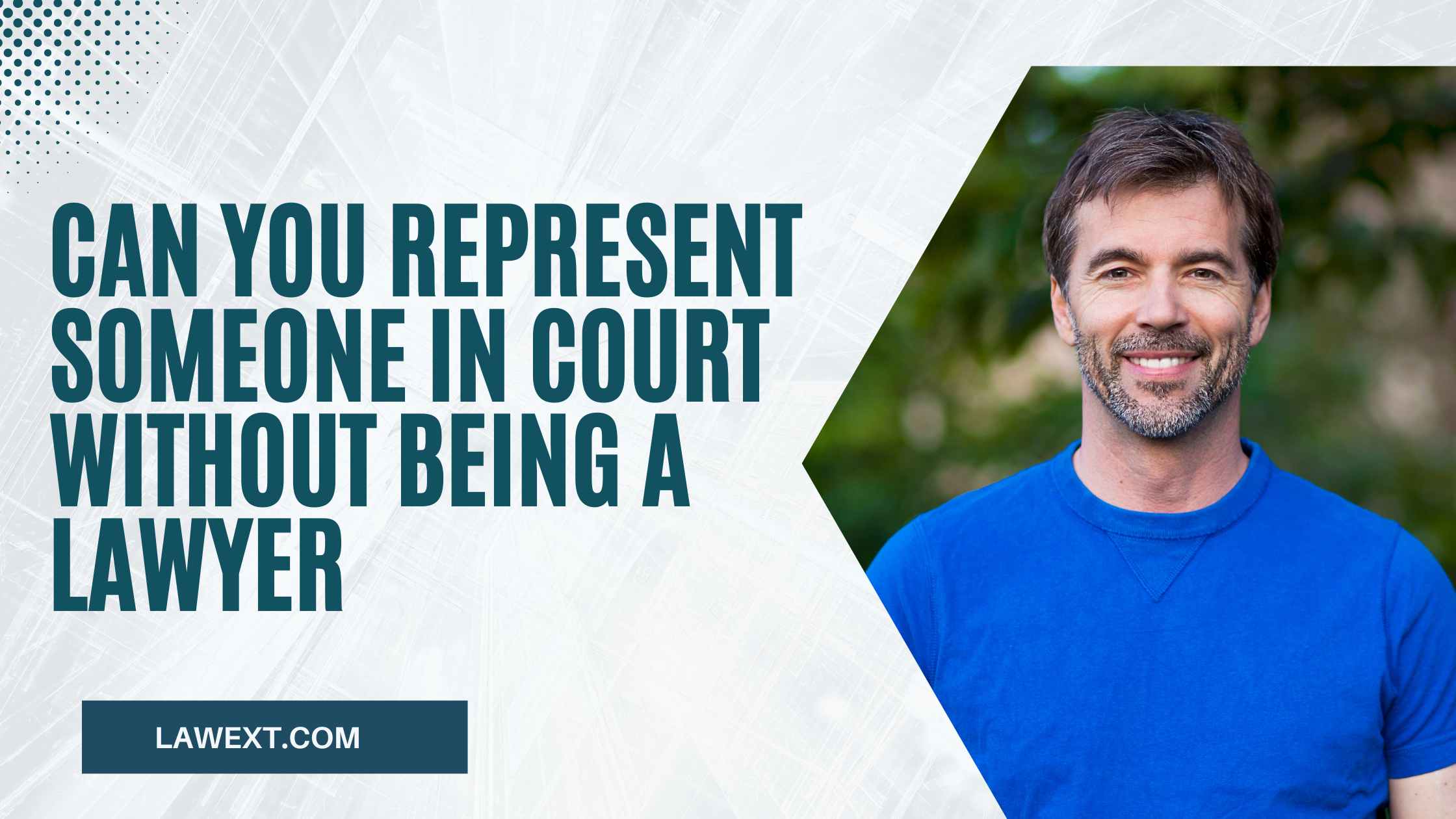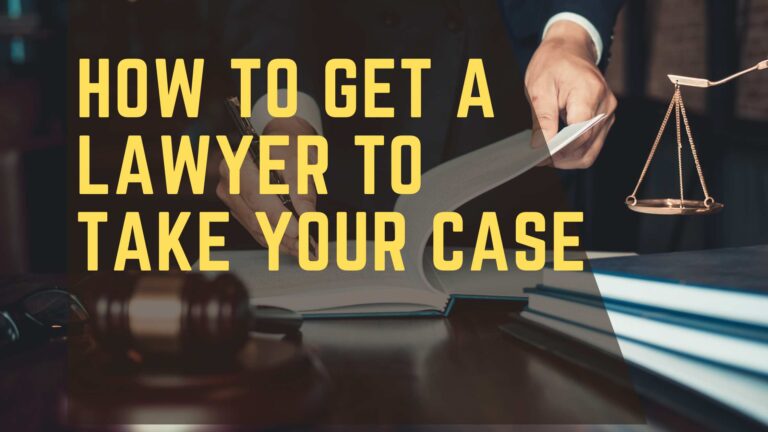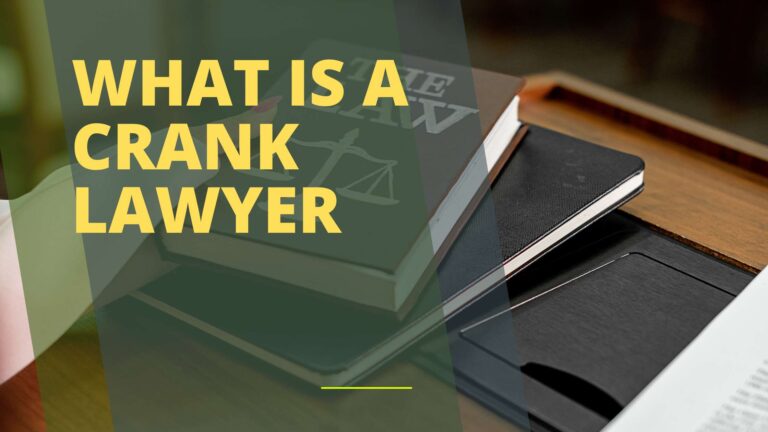Can You Represent Someone in Court Without Being a Lawyer?

No, you cannot represent someone in court without being a lawyer. When it comes to representing someone in court, it is essential to have the necessary legal expertise and qualifications.
Table of Contents
Only licensed attorneys have the authority and knowledge to navigate the complexities of the legal system and advocate for clients effectively. Although individuals may have some understanding of the law, representation in court requires extensive legal training and experience. This ensures that litigants receive proper legal advice, protection of their rights, and a fair trial. Can You Represent Someone in Court Without Being a Lawyer?
Attempting to represent someone without the proper qualifications can have serious consequences, including detrimental outcomes for the case and potential legal consequences for the individual attempting to provide representation.

Credit: thedefenders.net
What It Means To Represent Someone In Court
The Role Of A Legal Representative
In the legal system, representing someone in court refers to acting on their behalf and presenting their case before a judge or jury. These legal representatives, commonly known as attorneys or lawyers, play a crucial role in the justice system. When you represent someone in court, you essentially become their voice, advocating for their rights and interests.
Understanding The Responsibilities
Representing someone in court comes with significant responsibilities. As a legal representative, it is your duty to gather and analyze all relevant information and evidence to build a strong case. You must stay updated on relevant laws, regulations, and judicial precedents to provide accurate legal advice and strategies for your client. Additionally, you must develop persuasive arguments and present them effectively in court to seek a favorable outcome.
To fulfill your responsibilities, you may need to perform various tasks, including:
- Interviewing clients and witnesses to gather information
- Researching legal statutes, precedents, and court rulings
- Preparing legal documents, such as pleadings, motions, and briefs
- Conducting negotiations with opposing parties or their legal representatives
- Presenting evidence and arguments in court hearings or trials
- Cross-examining witnesses presented by the opposing side
- Ensuring compliance with court rules and procedures
- Evaluating settlement offers and advising clients on the best course of action
Legal Limitations And Restrictions
Legal limitations and restrictions exist when it comes to representing someone in court without being a lawyer. Understanding the laws governing legal representation and the types of cases that require a lawyer is crucial.
Laws Governing Legal Representation
There are specific laws and regulations in place that dictate who can legally represent individuals in court. In the U.S., each state has its own requirements and restrictions regarding who can provide legal representation. Unauthorized practice of law statutes prohibit individuals who are not licensed attorneys from offering legal services for compensation. It’s important to be aware of these laws to avoid potential legal consequences.
Types Of Cases That Require A Lawyer
Certain types of cases mandate the involvement of a licensed attorney due to their complexity and potential impact on individuals’ rights and well-being. Criminal cases often require legal representation, as individuals facing criminal charges have a constitutional right to an attorney. Family law matters, including divorce and child custody disputes, typically necessitate the expertise of a lawyer to navigate the complexities of the legal system. Civil litigation involving significant financial stakes or complex legal issues is also best handled by a qualified attorney.
Pro Se Representation
In the legal system, representing oneself in court without the assistance of a lawyer is known as pro se representation. This can be an intimidating prospect for many individuals, especially when dealing with complex legal matters. However, it is important to understand the definition and limitations, as well as the advantages and disadvantages, of this approach.
Definition And Limitations
Pro se representation refers to the act of an individual representing themselves in a court of law without the aid of a licensed attorney. It can apply to both criminal and civil cases, and the person taking on this role is commonly referred to as a pro se litigant.
However, it is crucial to recognize the limitations of pro se representation. While it may be possible to navigate certain legal processes without professional guidance, the intricacies of the law can be complex and overwhelming. Legal professionals undergo years of education and training to fully grasp the nuances of the legal system. Therefore, pro se litigants may face challenges when it comes to understanding and applying the law effectively, potentially jeopardizing their case.
Advantages And Disadvantages
Although representing oneself in court can seem daunting, there are both advantages and disadvantages to pro se representation.
Advantages:
- Cost: One of the primary benefits of pro se representation is the potential cost savings. Hiring a lawyer can be expensive, and individuals with limited financial means may find representing themselves to be a more viable option.
- Control: By representing oneself, individuals have complete control over their case. They can make decisions without relying on a lawyer’s guidance, thereby playing an active role in their legal proceedings.
- Learning experience: Pro se representation allows individuals to gain a deeper understanding of the legal system. Through research and preparation, they can become more knowledgeable about their rights, leading to increased confidence and self-advocacy.
Disadvantages:
- Legal expertise: As previously mentioned, pro se litigants lack the legal expertise and knowledge possessed by trained attorneys. This can put them at a disadvantage when it comes to understanding complex legal concepts and effectively presenting their case in court.
- Emotional involvement: Legal matters can be emotionally charged, and representing oneself may lead to heightened emotional stress. It can be challenging to remain objective and rational while advocating for one’s own interests.
- Procedural challenges: Pro se litigants may face obstacles when it comes to navigating the procedural aspects of the legal system. Filing documents, meeting deadlines, and adhering to court rules and procedures can be complex and overwhelming without professional guidance.
Assistance From An Attorney
You can’t represent someone in court without being a lawyer. It is essential to seek assistance from an attorney who has the necessary legal knowledge and expertise to properly represent your case.
The Role Of A Legal Advisor
When facing legal challenges, it is crucial to seek assistance from an attorney to navigate the complex processes involved in court proceedings. A legal advisor, also known as a lawyer, plays a vital role in representing individuals and providing expert advice on legal matters. Their extensive knowledge and experience enable them to guide their clients through the intricate web of legal procedures, ensuring that their rights are protected and their interests are well-represented.
Requirements For Limited Representation
Limited representation, also known as unbundled legal services, offers individuals the option to enlist the help of an attorney on a specific aspect of their court case without fully retaining them as legal representation. This arrangement allows individuals to access professional legal guidance while keeping costs at a minimum. Here are the key requirements for limited representation:
- Clear Communication: Effective communication between the client and the attorney is paramount in limited representation. Both parties must discuss and agree upon the specific tasks the attorney will undertake, ensuring a clear understanding of the scope and limitations of the attorney’s involvement.
- Conflicts of Interest: The attorney must ascertain that there are no conflicts of interest that may hinder their ability to provide unbiased and objective advice. This ensures that the attorney can focus solely on the client’s best interests and work towards achieving favorable outcomes.
- Informed Consent: Before proceeding with limited representation, the client must provide informed consent, acknowledging that they understand the limitations and potential risks associated with this arrangement. This ensures transparency and reduces the likelihood of misunderstandings or unrealistic expectations.
- Documentation: To formalize the agreement and protect the rights of both the client and the attorney, it is essential to document the terms of limited representation in a written agreement. This agreement should clearly outline the tasks to be performed by the attorney and the corresponding fees, if any.
In conclusion, seeking assistance from an attorney is imperative for successfully navigating court proceedings. Whether opting for full representation or limited representation, the guidance and expertise of a legal advisor can significantly impact the outcome of a case. By understanding the role of a legal advisor and the requirements for limited representation, individuals can make informed decisions regarding their legal representation.
Courtroom Etiquette And Procedures
Courtroom etiquette and procedures play a crucial role in how an individual is perceived and treated in a court setting. Understanding these protocols is essential for anyone representing someone in court without being a lawyer. The way you dress, behave, and interact with others in the courtroom can significantly impact the outcome of the case. It’s important to adhere to proper etiquette and procedures to ensure a professional and respectful environment.
Dress Code And Demeanor
When representing someone in court without being a lawyer, it’s crucial to adhere to the appropriate dress code and maintain a professional demeanor. The attire should be formal and conservative, avoiding flashy or inappropriate clothing. Additionally, maintaining a respectful and composed demeanor is vital. Address the judge as “Your Honor,” maintain eye contact, and speak clearly and confidently when addressing the court.
Understanding Court Rules
To effectively represent someone in court, it’s imperative to have a thorough understanding of the courtroom rules, procedures, and expectations. Familiarize yourself with the local court rules, filing deadlines, and the proper way to submit documents and evidence. It’s essential to follow the court’s guidelines diligently to avoid any procedural errors or missteps that could impact the case.

Credit: www.amazon.com
Conclusion
Representing someone in court without being a lawyer is allowed in some cases. Understanding the limitations and legal implications is crucial. It’s essential to consider the potential risks and seek appropriate legal guidance when necessary. By being well-informed and seeking professional advice, you can navigate this complex legal area effectively.
Amelia Justiceberg, a distinguished legal luminary, thrives on the intersection of empathy and legal acumen. As a prominent family law attorney, she orchestrates compassionate resolutions amidst complex dynamics. Justiceberg's courtroom finesse and dedication to fairness define her practice. Beyond litigation, she ardently advocates for social justice, solidifying her reputation as an influential force in the legal landscape.






